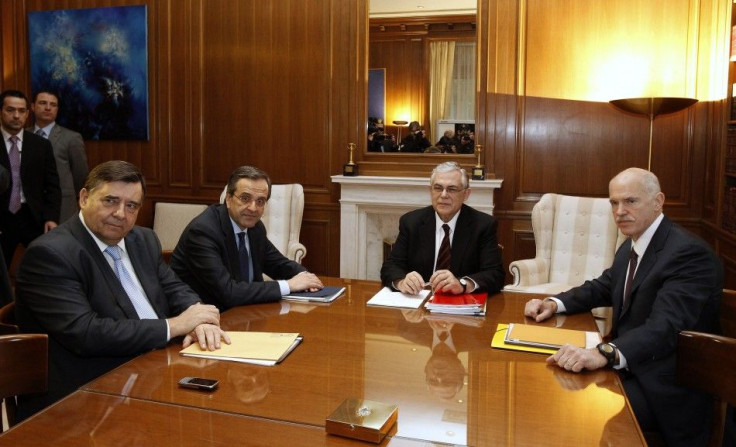Greece Delays, Yet Again, Agreeing to More Austerity Measures

Greek officials Tuesday missed yet another deadline, their third in as many attempts, to agree to conditions for receiving $170 billion in bailout money, a particularly disappointing development as Athens had appeared earlier in the day near a final deal.
Intense negotiations between Athens and the so-called troika -- the European Commission, the European Central Bank and the International Monetary Fund -- seemed tantalizingly close to resolution early Tuesday, with reports that the two parties were finishing a 15-page draft agreement that included tax hikes and emergency budget cuts that would free up the rescue money, essential if Greece is going to avoid defaulting on its massive sovereign debt.
A deal is really close (among the coalition partners), one source had said. After they agree it must be ratified by parliament.
Without the bailout money, Greece is expected to default on a $19 billion euro bond redemption next month.
But late Tuesday concerns arose over an extra $4 billion in emergency spending cuts and the fact that Greek coalition government leaders yet to receive copies of the 15-page draft agreement. Those leaders made it clear to technocrat Prime Minister Lucas Papademos they would not agree to anything until they had had an opportunity to carefully the document.
We can't say a plain yes or no unless we have assurances from the relevant authorities and the state that these actions are constitutional and will lead the country out of the crisis, far-right LAOS leader George Karatzaferis told Reuters. There is time. When it comes to future of the country, we will find the time.
In response, Papademos said he would meet Wednesday morning with the troika in hopes of finalizing a deal by the end of this week.
The duality of meeting the troika's reform demands while keeping Greek citizens happy ahead of an election later in the year has made markets skittish ahead of any deal. Stocks in Europe closed mostly lower though the euro was up.
Vacillation within the Greek parliament is once again a source of incredulity amongst euro-zone officials as the former's interim government breaches a deadline for agreement upon bailout terms, said Neil Mellor, a strategist at Bank of New York Mellon Corp. in London, according to Bloomberg. We watch, we wait.
© Copyright IBTimes 2024. All rights reserved.











